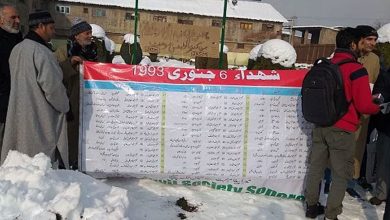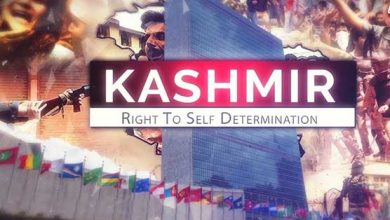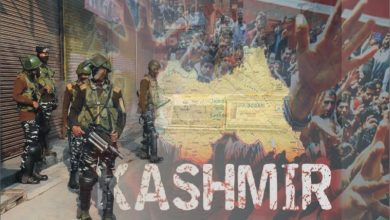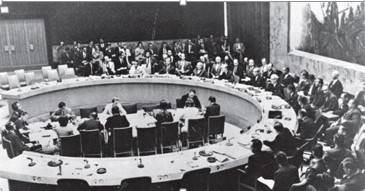Article: Kashmir’s voice on January 5: A pledge for justice and self-determination
Abbass Ali
 Every year on January 5, the people of Jammu and Kashmir, along with millions of others throughout the world, come together to observe Right to Self-Determination Day—a day that echoes with the persistent call for justice, freedom, and the fulfillment of decades-old promises. This day is more than just a historical reminder of the United Nations’ resolutions on Kashmir’s right to self-determination; it is also a solemn pledge by millions of Kashmiris that their fight against Indian occupation will continue until the objective of a peaceful, free Kashmir is achieved.
Every year on January 5, the people of Jammu and Kashmir, along with millions of others throughout the world, come together to observe Right to Self-Determination Day—a day that echoes with the persistent call for justice, freedom, and the fulfillment of decades-old promises. This day is more than just a historical reminder of the United Nations’ resolutions on Kashmir’s right to self-determination; it is also a solemn pledge by millions of Kashmiris that their fight against Indian occupation will continue until the objective of a peaceful, free Kashmir is achieved.
The historical significance of January 5, 1949 begins from a historic resolution passed by the United Nations Commission on India and Pakistan UNCIP in line with earlier resolutions of the United Nations security council and United Nations Commission on India and Pakistan calling for the right to self-determination of the people of Jammu and Kashmir . The resolution declared that the people of the region will be able to choose their political fate in a free and impartial plebiscite overseen by the UN. However, this promise has not been fulfilled, with Kashmiris facing decades of hardship, oppression, and human rights violations in Indian-occupied Jammu and Kashmir (IIOJK).
Since that watershed moment in 1949, the struggle for self-determination has been a central theme in Kashmir’s political turmoil. Despite over seven decades, the Kashmiri people’s aspiration for self-determination, peace, and justice is stronger than ever. Every year on January 5th, the international community is reminded of the unfulfilled promises made to the Kashmiri people.
The people of Jammu and Kashmir have long been in the midst of the fight for self-determination, a universal objective recognized under international law. The determination of Kashmiris to exercise their inherent right to determine their political status and destiny lies at the heart of this conflict. It is a fundamental human right that every nation and people should have, yet successive Indian governments have persistently denied it to Kashmiris.
The Indian government remains engaged in using its military might against the oppressed people of IOJK. This military oppression led to a regime of human rights violations in Indian occupied Kashmir. The National and Internation organization have documented numerous reports on this human rights violation and even United Nations High commissioner for Human Rights office also issue two reports in 2018 and 2019, making it clear Indian government forces have remained engaged in arbitrary arrests, custodial killing, enforced disappearance and sexual abuse against women folk in Kashmir. According to Kashmir Media service data released on first January 2025, Indian forces martyred over 96388 innocent people out of which 7375 were killed while in custody and over 10,000 people have disappeared while in custody of Indian forces, about 11, 000 women have been made victims of sexual assault by the Indian army and other paramilitary forces.
In August 2019, India took unilateral and unlawful measures, including revoking Article 370 of the Indian Constitution and altering the region’s demographic and political climate, exacerbating Kashmiris’ oppression. These actions not only ended Jammu and Kashmir’s distinct status, but also laid the framework for demographic engineering and the subjugation of the region’s Muslim majority population. Despite these efforts, the Kashmiri people’s determination remains immovable. January 5th marks their desire to continue the fight for self-determination, asserting the right to select their own destiny free of outside interference.
While the struggle for self-determination is a localized conflict, it is undoubtedly a global issue that must be addressed by the international community. The United Nations, as the institution that enacted the 1949 resolution, has an ethical and legal obligation to ensure that its decisions are implemented. However, the lack of progress on the Kashmir issue indicates global apathy and unwillingness to hold India accountable for its violations.
The day’s observance is an appeal to the United Nations and the international community to reaffirm their commitment to carrying out UNSC resolutions on Kashmir. The Kashmir conflict is not a bilateral issue between India and Pakistan; it is a long-running international dispute about the fate of an oppressed people. The cry for self-determination is a call for justice, human rights, and the capacity of Kashmiris to shape their own future. The international community’s silence on Indian genocidal acts has enabled India to continue its cruel occupation and denial of basic human rights to the people of Jammu and Kashmir.
Pakistan has consistently supported the Kashmiri people’s right to self-determination. Pakistan has continuously highlighted the matter at numerous international venues, including the United Nations, the Organisation of Islamic Cooperation (OIC), and other global forums, since the conflict began. Pakistan continues to urge for the implementation of UN resolutions, stating that any settlement to the Kashmir conflict must be based on the choice of the people of Jammu and Kashmir.
Aside from political support, Pakistan has provided moral, diplomatic, and humanitarian aid to the people of Kashmir, notably in Azad Jammu and Kashmir (AJK) and Gilgit-Baltistan.
As we mark Right to Self-Determination Day on January 5th, it is important to remember that this day is more than just a commemoration of the past; it is also a rallying cry for the future. It is an appeal to the international community to uphold its moral and legal obligations, as well as to hold India to the vows made in 1949. The Kashmir issue is a blot on the global conscience, and it must be addressed not just for the sake of the Kashmiri people, but also for regional stability and peace.
(The writer is a student of BS International Relations at Abdul Wali Khan University and intern@ Kashmir Institute of International Relations)








